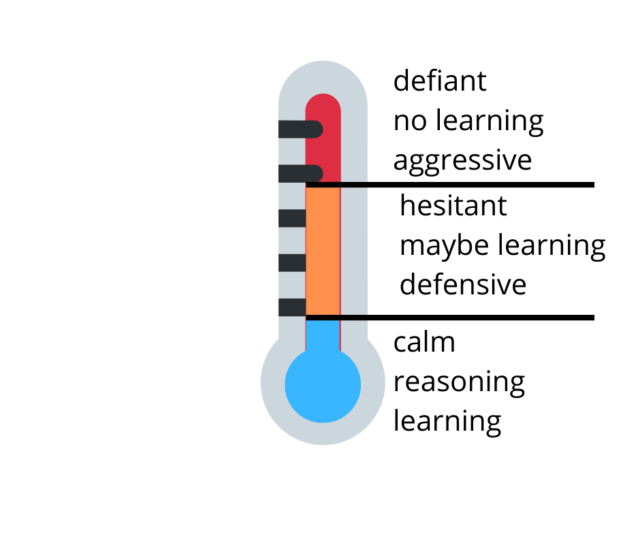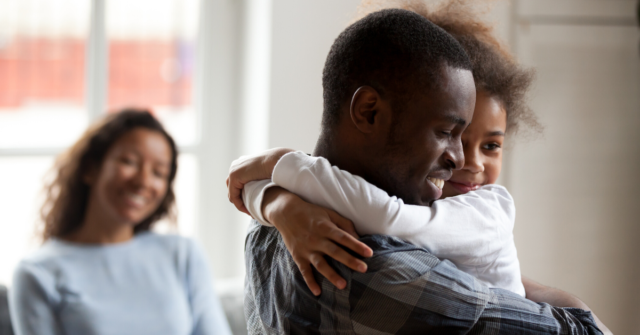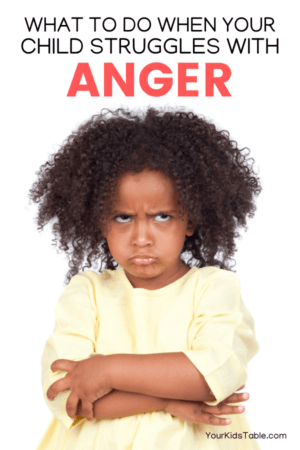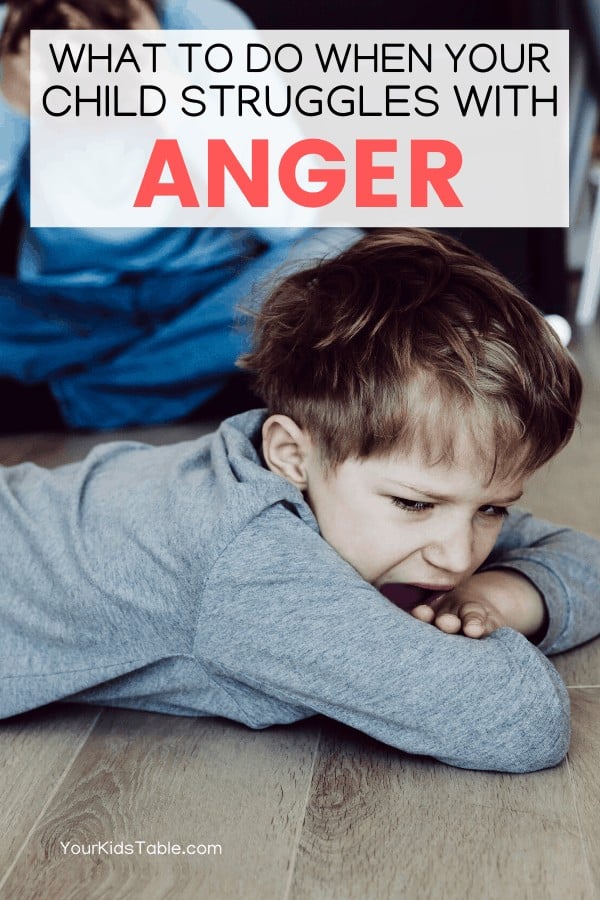Do you have a child that struggles with anger and big emotions? Learn why and how to help them with an amazing parenting strategy to help them cope and manage their emotions in a new way!
I’ve been asked, “What do I do when my child gets angry?” As an OT, I have a couple of thoughts, but I’m not the expert on anger management for children, so I turned to my good friend and my co-teacher of Sensory Solutions, Wendy Bertagnole of the Exceptional Parenting Podcast, to tell us why our kids get angry and how we can help them.
Sign ups just began for a special workshop she’s doing to help bring calm into your home. If you struggle with your child’s behavior in anyway, this will be a help. Grab a spot here.
Wendy is my absolute go-to expert about behavior! Without further adieu, I’ll let her take it away…
What to Do When Your Child Struggles With Anger
Watching my kids play at the park, my heart felt so happy seeing my son smile. Unfortunately, that smile didn’t last long. Someone would get to the slide before him, look at him the wrong way, or play in a way he didn’t want, and then anger would flow.
He struggled with anger, and as any parent, I felt responsible.
What did I do differently with this kid? Why was he so angry all the time? Did I need to be more stern with him? Or more patient?
After digging through books, wondering about a diagnosis, and feeling guilty for years, I finally came across an unlikely answer that has helped us both ever since, and is now what I teach parents in all my online programs.
Why Do Children Get Angry
Kids have it easy right?
They don’t have to pay bills, make doctor appointments, go to work, or deal with taxes. In theory, their lives are pretty stress free, so logically, they SHOULDN’T be that angry.
Reality is, what might seem like a little thing to us adults, can be a HUGE deal for kids, for a few reasons:
1. Some kids feel emotions more powerfully than others
2. Most kids don’t have the skills to work through smaller emotions, which build
up into bigger emotions like anger
3. Some kids naturally operate from a higher emotional state, which means they
can be pushed over the edge into anger more easily than others.
If we think of our internal stress meter like a thermometer, it’s easier to see why some kids are more reactive, and more angry than others.

If the bottom of the thermometer is where we are cool and relaxed, the blue zone, it’s also the part where we are fairly stress free, resilient, and can think logically through different stressors that come up.
In the orange zone, a person is feeling stress, a little anxious, a little “off”. When a kid is in this zone, they are less patient, less reasonable, less resilient, and more easily triggered into the red zone.
The red zone is full blown anger. It’s the fight/flight response in our brains. When this happens, our brains turn off the portions of higher thinking to focus purely on survival. It sounds extreme, but that’s the way our brains work. So, when a kid is in this zone, communication decreases, logic is gone, reasoning is gone, and its pure emotion in those moments.
Most people operate from the blue zone, which means getting to the red zone doesn’t happen often.
But, there are some, like our kids, who are living in the orange zone more often than not. That means, what might be a “small thing” to a person in the blue zone, is a trigger that pushes these kids quickly into the red zone because they’re already so close to it. What are the reasons a kid would be in the orange zone more often? Here are a few…
Sensory
It seems weird that the sensory system can cause anger, but it’s true! When a person’s sensory system isn’t regulated, emotions rise and become more intense, leaving them in the orange zone most of the day.
We all have a sensory system, and we all have sensory preferences. When our sensory preferences aren’t met, we operate in the orange zone.
Imagine living with the sound of someone scraping their nails on a chalkboard all day every day. How much patience would you have? How long would it take to send you into “angry parent mode” or the red zone? Not much.
That’s how it is for our kids, too. And, it’s why something seemingly small can create a HUGE reaction in our kids. It all seems over the top, and that’s how it feels for them too.

Emotions
“Big emotions.” I’m sure you’ve heard the term. Looking back on those angry years with my son, I realize he wasn’t just expressing anger, he was also expressing intense joy, intense love, and a ton of other emotions. His emotions, all of them, are stronger and more intense than what most of us feel.
He feels BIG.
This is true for lots of kids, and because they usually don’t have the words to describe their big emotions, they tend to act them out. So, big emotions equals big behaviors.
Anger tends to be an all encompassing emotion to demonstrate fear, frustration, disappointment, anxiousness, and so many other things. While it seems like your kid ONLY feels anger, or happiness, reality is, there are a lot of other emotions behind those angry outbursts.
And, when a kid is feeling big emotions all day every day, they are rarely in the blue zone. This is definitely a common thread for kids who operate in the orange zone.
Why Typical Parenting Strategies Don’t Work
Most parenting tips don’t help us to parent kids with big emotions, or sensory needs. In fact, most parenting tips make it worse.
Here’s a quick example of popular parenting strategies and how they affect our kids who are struggling to navigate an emotion, or sensory needs.
-
- Ignore it – Kids never learn what it is or how to work through it. They just know what they’re doing is “bad” or “wrong”, but not how to work through it.
-
- Timeout – Kids feel shame for their reaction, but never learn how to work through it.
-
- Be Patient – Parents feel like there’s no progress being made, because kids will still continue to get angry. This typically leads to parent burnout because there’s only so much patience a parent can have.
-
- Be More Stern – Parents end up worn out because they are punishing the RESULT of a big feeling, not the actual cause. Kids end up feeling unheard, misunderstood, and even more angry.

A Powerful Anger Management for Children Strategy
The biggest change happened in our home when I started looking at what was CAUSING the anger, rather than trying to change the anger.
The biggest change we’ve made, and dozens of my students have made as well, is to help our kids label their feelings.
If their behavior is their way of acting out a feeling, when they are given words to express that feeling, they don’t need the behavior as much.
One student had a 6 year old who was known for his angry outbursts which included hitting, and calling people names. She started teaching him to label his feelings, and within weeks he was hitting less, and using his words more.
Taking the Next Step (Free Workshop)
I won’t ever claim to have a “magic fix” for behavior, it’s definitely a complicated thing. But labeling it will help get you on the right path.
If you want to know
- When to start labeling the feelings,
- How to do it without making your kid more angry,
- And 4 simple things you can do to help your kid operate in the blue zone more often,
Join the “Four Daily Habits You Can Use Today to Bring More Calm Into Your Home” free online workshop.
It’s only available for a limited time and I’d love for you to be there.
Click here to grab a spot in the free workshop to calm your home!


Is this class still available? I clicked the link and logged into my teachable account but it’s not there. I’d love more information.
thanks.
Hey Mandy,
The free workshop was for June 17 – 23rd. Wendy does have some great information on here site too!
Best,
Desiree
I honestly did not even notice skin color. As a family that wrestles with multi-generational ASD, I could only identify with the reality of the facial expressions. Sensory struggles can be heart-breaking and debilitating and are not limited to any particular ethnic group. Kids with significant sensory struggles, and their parents, are often judged harshly as “bad kids,” or “bad parents,” and are frequently shunned, instead of being accepted and understood. That is a painful discrimination that goes beyond race.
Hey Mary Anne,
Thanks for sharing your perspective! It can be really hard for children/adults who have difficulties such as these! We are totally with you and understand, hoping that everyone opens their hearts to know that not everyone is the same and we all face different challenges.
Best,
Desiree
It’s a pity that some people always focus on color, race or gender. They are just pictures! Secondly, how come is it ok to depict a white person as angry, but no one else? Thirdly, who are the racists if you immediately notice color?
Agree! It seems like society is now looking for racial discrimination and making it exist where it wasn’t in the first place. I don’t see what is gained by this. Let’s teach kids to look past color. And do so ourselves! The creator of this page does a wonderful job of displaying diversity and there was zero intent and probably not even any unconcious bias when she chose these pictures. She is simply showing emotions and promoting inclusivity!!
I appreciate all of this great information. Thank you for sharing.
I wanted to suggest that you please be mindful of the photos of children you post with emotions. For instance, in this article, you have a Black child associated with anger and a white child associated with the positive strategy of talking to an adult. I am sure this was completely unintentional. It is subconscious and were not always aware of this detail because of our own implicit bias. As an OT myself, I do my best to educate those around me to be culturally competent and aware how our implicit bias can impact others. Thank you for taking the time to read this comment. It is my hope that next time you think about how the photos you choose may affect your audience reading it.
https://www.sciencedaily.com/releases/2018/07/180702111106.htm
Hi Divina,
Thank you so much for responding so thoughtfully and patiently here Divina. We need more conversations like this and I appreciate you sharing. I am learning. I have long been aware that we don’t use a lot of photos with black people and other’s of color. There often aren’t any to choose from. When my team found this picture I was happy to use it, but didn’t think of the underlying subconscious implications juxtaposed against the other image. We actually had created several other heading images that we use for various social media, and swapped it out. We are adding more images to the post and changed our primary image here. I am committed to learning more and again thank you for pointing out how we can do better here.